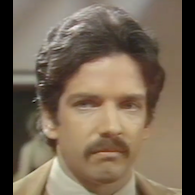-
Recently Browsing 0 members
- No registered users viewing this page.
-
Recent Posts
-
https://parade.com/news/days-of-our-lives-star-susan-seaforth-hayes-pays-heartfelt-tribute-to-denise-alexander-a-friend-to-treasure
Please register in order to view this content
-
By rsclassicfanforever · Posted
Sorry, there must have been a error, while creating the file. I redone it and it has audio -
By BetterForgotten · Posted
Tamara Tunie was on a local CBS affiliate in Baltimore the other day talking about a few things she had going on, BTG amongst them: "Beyond the Gates" star Tamara Tunie is in Baltimore for the Reginald F. Lewis Museum's 20th anniversary -
By Paul Raven · Posted
Kobe/Long had their own template and pretty much gutted the cast. As soon as contracts were up established characters were dropped. They needed to free the budget for the new characters. Going back to Ann,I wonder why the Dobsons renewed her contract around 78? After her initial story she became supporting and they didn't seem to want to pursue a romance with Mike. Maybe the feedback was that viewers blamed her indirectly for Leslie's death. If Mike hadn't taken on her case etc. Did she decide not to disrupt her son's life? Seems odd after everything she didn't claim him back. 1976 continues... Joe Werner is just not bouncing back after his recovery as he should, and Sarah, concerned about his sometimes morbid-seeming depression, consults Justin Marler. They agree that Joe is becoming a “cardiac cripple,” and know this kind of overcompensation for illness and overprecaution can not only be a permanently depressed condition but can actually cause a setback for him physically. Marler releases Joe into Sarah’s care, but it’s soon apparent that just being out of the hospital hasn’t done anything to boost Joe’s spirits about his return to a normal existence. Marler finally lays it out to Joe—the choice has to be his. He can choose to lead a normal, productive life as a doctor and as a husband to the best wife he could have, or he can choose to become an invalid and live on the outside looking in for the rest of his days, sentencing Sarah to the same fate. Realizing the selfishness of what he’s doing to —Sarah as well as the narrowness of the confinement he’s set for himself, Joe begins to see his preoccupation with his illness as the self-pity it really is and decides he’s ready to return to the hospital for a one hour shift each day. Sarah is overjoyed by his turnabout, but full happiness is hers on the day she overhears Joe telling a fearful patient that the world is beautiful and worth any. effort to get back into it. Steve and Adam are thrilled to learn that Cedars has been the recipient of the Levy Grant for expansion of hospital property. But they have learned, as they report to Ed, that the land they were hoping to build the new research facility on, the land immediately adjacent to the hospital, has been purchased by Dr. Justin Marler. Both Adam and Steve feel that Justin is expanding a power base at Cedars and the land purchase is just one more block in Justin’s power play. When Ed asks Marler why he purchased this particular parcel of land, Marler explains that he bought it with the express intention of someday building his own offices and facilities convenient to the major facilities of Cedars. When the subject of the hospital’s needing the land arises, Marler meets with Adam, and they agree that he should realize a fair profit from his property and that an unbiased assessor should be engaged to evaluate the market value of the land so they can agree on a selling price. When Sarah comments on the fact that Marler is to realize a profit on the land, he bitterly replies that no matter what he’s done since coming to Cedars to prove that he has changed. since she last knew him, she refuses to see him as anything but what he was all those years ago. Sarah insists this isn’t true. But Marler then calls Adam for a meeting and informs him that the land is not for sale at any price. As Adam begins to grow alarmed, Marler continues that the site for the new building will be his personal donation to the hospital. As Adam expresses profuse thanks and appreciation, Marler wryly notes that the tax deductions he’ll realize on this contribution to a charitable institution will benefit himself almost as much as Cedars. When Steve Jackson learns that Marler is to be elected head of the research wing that will be built on his property, he expresses the conviction that this was the exact intention of the gift. Adam, however, assures Steve that the donation wasn’t a factor in the hospital board’s decision, they were concerned only with Dr. Marler’s reputation as a doctor. | After lengthy consultations and meetings. with the hospital staff, Ed assured by the head nurse that her nurses performed commendably despite the added pressure of the train wreck, presents his findings to the hospital review board. Steve arrives at two possible explanations for the facts. Either Grainger, more active than usual due to the previously delayed medication, reached for the writing pad and inadvertently disconnected the breathing tubes, or he was in a state of extreme upset because of the delayed medication and.in the excitement a surge of adrenalin within his system caused his brain aneurism to start hemorrhaging. " Upon learning that the review board has ruled out negligence in Grainger’s death, Ed tells Rita, who takes her first free breath in a long time. But Ed hasn’t thought to tell Rita that he’s been in touch with Grainger’s attorney, Mr. Schafer, who, knowing that a woman was at the base of Grainger’s investigation, is coming to Springfield to try to find out who the woman - was who walked out on Grainger when he collapsed —in the restaurant. Peggy, learning that Rita’s “forgetting” to deliver Holly’s message was instrumental in their divorce ‘being finalized, tells Ed that Holly wanted to reach him to stop the divorce. Immediately after, Peggy is torn by doubts, wondering if she did the right thing.She confides in Barbara, who then discusses the situation with Ed. He tells her he and Holly have discovered a new closeness now that they are building their separate lives. Barbara quickly contradicts him: Holly is not building a new life. Barbara gently cautions Ed, saying, “People change, feelings change, and what seems right now may not be right a year from now. No decision is irrevocable.” Ed agrees with this. Now that Ben has declared his love for her, Hope finds herself apprehensive, fearing that she might be making a mistake, as she did a few years ago, when she was sure she was in love with her college professor. Explaining that she doesn’t want to make another mistake, she asks Ben to be patient, and he agrees. When Mike expresses his disapproval of Ben’s overstated independence, his need to be beholden to no one, Hope quickly jumps to Ben’s defense, and Mike apologizes. But Ben, surprisingly, accepts Mike’s assessment as constructive criticism. Later Hope, examining her feelings and desires, tells Ben she does love him and wants to belong to him. Later that evening, after they’ve made love, Ben asks Hope to marry him.And, delighted, she replies that she will. At Hope’s instigation, Bert has a family dinner to which Ben is invited, and Hope announces their intention to marry over glasses of wine. Mike politely offers best wishes while Bert thrills the couple with her offer to' make a Christmas wedding for them. Bert later tells Mike he must accept this engagement with good spirits for Hope, and later, seeing the joy she’s feeling, he gives his daughter his approval. But Ben finds another problem on his very own doorstep: his brother Jerry, who announces he’s left home after several bad fights with their parents. He refuses to tell Ben what they were fighting about. As Ben is showering, Jerry borrows his car and goes out for an hour. The phone rings, but Ben can’t hear it. Shortly after, two uniformed officers visit Mike at home to tell him that his late wife’s car has been involved in a delicatessen robbery earlier in the evening. Since Ben bought Leslie’s car, Mike accompanies the officers to Ben’s apartment. Ben curtly informs the police that he had nothing to do with the robbery and makes it clear that he feels they wouldn’t be there if he didn’t have a record and that his exoneration doesn’t prevent his being hassled like any ex-con,as they tell him he has to go to the police station for questioning. Hope tells Ben she called him earlier, and when he replies that he must have been in the shower, she accepts his word unhesitatingly.Jerry finally returns to Ben’s place and under questioning from Ben admits that he robbed the store,explaining that he has debts. Ben is now in a quandary,as he feels he must protect his brother but doesn’t want to be unfair to Hope. He tries to ease the situation by withdrawing $185 from the joint checking account he opened with Hope and repaying the delicatessen owner. He then sends Jerry out of town to stay with a friend. His relief at having solved the problem is short-lived, however, when Mike informs him that, despite the reparations, the robbery was a felony and the police will continue to investigate. Hope is badly upset to learn while making a deposit that Ben withdrew’a sum which Mike tells her is equal to the amount stolen. This shakes her belief that he _was really home when she called, and she goes to him, asking for an answer to put her mind at rest. Ben can’t betray Jerry and asks Hope to trust him, promising she will have the whole story eventually. But Hope can’t accept this; she needs complete honesty and openness in her relationship and without it cannot goon. She painfully tells her father that the wedding is off despite her love for Ben, and tells Bert to stop preparations. Mike goes to Ben, reminding him that half the money in the account is Hope’s and she has the right to an answer. But Ben won’t say any more and refuses Mike’s offer to represent him legally, again stating that he doesn’t need a lawyer, because he’s done nothing wrong. -
By Paul Raven · Posted
And not since. I recall it was quite small for a house that size. And I don't know why you would walk down a narrow corridor to get to the main living area. I hate when the sets on soaps don't have a logical layout! As for Andre his clothing is fashion forward and suitable for his character.He ain't gonna wear no blazer! -
The last I remember seeing Ben, he was divorcing Amanda. He came to tell Evie that he still loved her, but was leaving town so that Amanda wouldn't blame Evie for his divorcing her. I'm not exactly sure when, but Evie doesn't leave town until sometime after Nola and Quint's engagement ball. I'm not sure if she leaves before or after Justin leaves in Sept(?) of '83. I grew to like Helena when she became friends with Vanessa, once she's edging her way out of Quint's life.
-
Please register in order to view this content
-
It sure was! With respect, how does that make sense? These men are young, I don't see that.
-
I hope this played better than it sounds, because I'm imagining two separate scenes (the attack by Arnie, and later Charles getting shot). In my mind, it should have been a fluid single sequence. I wonder if or how often "bastard" was uttered in this scene. Fare thee well, Christopher Reeve. I've said it before, but pop culture's gain was daytime's definite loss. Imagine seeing HIM day after day, year after year, decade after decade, conceivably until they stopped producing soaps in NYC. Well, that answers my "bastard" question. Good lord, the roads of Rosehill are packed with high-strung drivers and/or pedestrians. More sequences that I hope played better than they sound.
Please register in order to view this content
-








Recommended Posts
Archived
This topic is now archived and is closed to further replies.